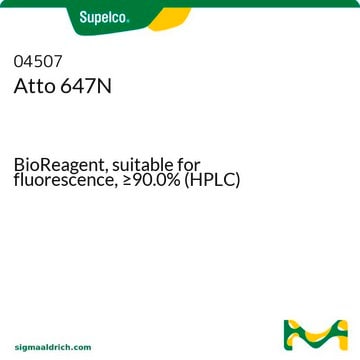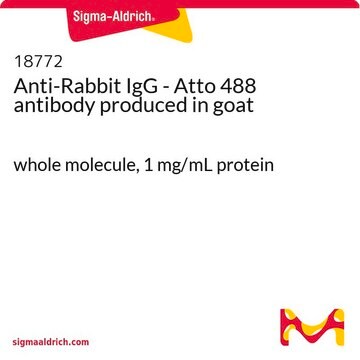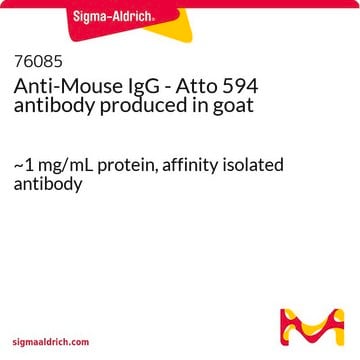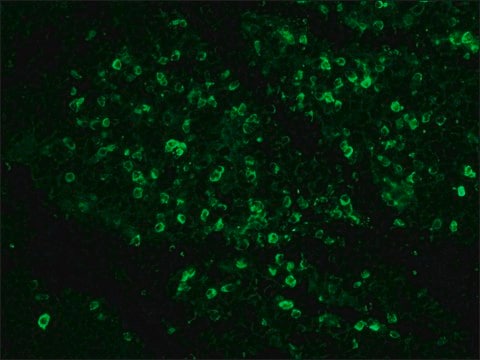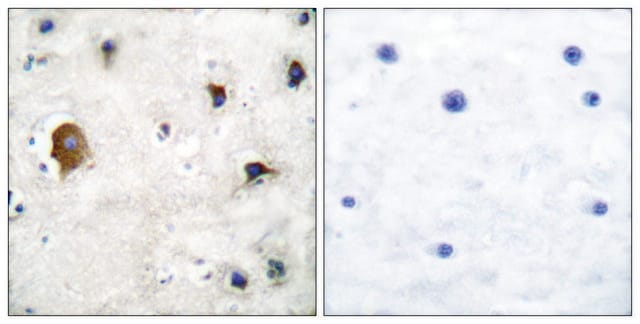77671
Anti-Rabbit IgG - Atto 594 antibody produced in goat
Synonym(s):
Atto 594 - [goat-Anti-rabbit IgG]
About This Item
Recommended Products
conjugate
Atto 594 conjugate
antibody product type
secondary antibodies
clone
polyclonal
form
liquid
contains
50% glycerol as stabilizer
species reactivity
rabbit
concentration
~1 mg/mL protein
fluorescence
λex 607 nm; λem 626 nm in PBS
suitability
corresponds for gel electrophoresis
storage temp.
−20°C
target post-translational modification
unmodified
General description
Application
Analysis Note
Legal Information
Disclaimer
Not finding the right product?
Try our Product Selector Tool.
Signal Word
Warning
Hazard Statements
Precautionary Statements
Hazard Classifications
Eye Irrit. 2
Storage Class Code
10 - Combustible liquids
WGK
WGK 3
Flash Point(F)
Not applicable
Flash Point(C)
Not applicable
Personal Protective Equipment
Certificates of Analysis (COA)
Search for Certificates of Analysis (COA) by entering the products Lot/Batch Number. Lot and Batch Numbers can be found on a product’s label following the words ‘Lot’ or ‘Batch’.
Already Own This Product?
Find documentation for the products that you have recently purchased in the Document Library.
Customers Also Viewed
Our team of scientists has experience in all areas of research including Life Science, Material Science, Chemical Synthesis, Chromatography, Analytical and many others.
Contact Technical Service
